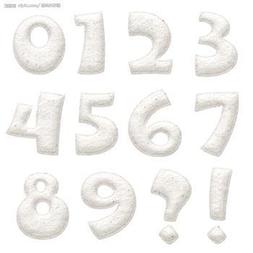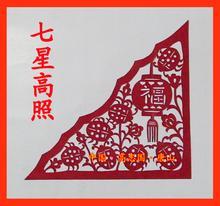
Last issue we explored the rich fabric of meaning behind the numbers one through five in traditional Chinese culture. This issue we look at six through 10, and find them popping up in Chinese idioms and expressions no less frequently than their five smaller siblings.
六 (liù), six, in Mandarin is pronounced similar to 流 (liú), fluid. Swift, running water and fluidity connote business success. In China, six also symbolizes luck, health and the family. Many idioms and sayings have the number six in them, such as the one relating to traditional Chinese medicine (TCM) we encountered last month, 五脏六腑 (wǔ zàng liù fǔ). In Confucian ideology, 六亲 (liù qīn) indicates close familial ties, such as those between the father and the son, brothers, and spouses. Nowadays it has also come to imply happy relations between relatives. Some related idioms include 六亲不认 (liù qīn bú rèn), used complimentarily to mean a person who refuses to use his status to grant favors to relatives, and pejoratively to mean a person so cold as to even ignore his family members. 六亲无靠 (liù qīn wú kào) is another, used when someone has no one to turn to, not even his or her family.
眼观六路, 耳听八方 (yǎn guān liù lù, ěr tīng bā fāng) is an idiom describing an agile and capable person who makes well-rounded observations and analysis. 六路 (liù lù) in the expression represents six directions – left, right, up, down, front, and back.
In general, six relates to success and smooth progress in Chinese culture. While drinking alcohol, finishing off one’s glass in six sips follows the saying 六六大顺 (liù liù dà shùn) to wish all those sitting at your table a happy life, and is a practice seen in restaurants and bars across the country. Many Chinese choose to be married on June the sixth, as the double sixth is regarded as a very auspicious date. Those who land a six in their cell phone number or car license plate feel lucky. A triple six, far from symbolizing the devil as in the West, is a sign of good fortune.
To a Frenchman, the Chinese 七 (qī), seven, looks very much like a French ‘7’ written by hand and upside down. There are few idioms featuring this number, and the ones that do generally carry a negative meaning. 乱七八糟 (luàn qī bā zāo) means a mess, i.e. when someone’s room is untidy. 七上八下 (qī shàng bā xià) is the equivalent of having butterflies in one’s stomach. Its literal meaning, “to be at sixes and sevens,” is very similar to the French expression indicating “no beginning and no end.”
One idiom with neutral connotations containing seven is 七情六欲 (qī qíng liù yù), a Buddhist expression in which 七情 (qī qíng) indicates the seven emotions that can prevent one from achieving enlightenment: happiness, anger, sadness, fear, love, hatred and desire.

One with positive connotations is 七星高照 (qī xīng gāo zhào), which is used as a greeting to wish people good luck and smooth progress in their endeavors. 七星 (qī xīng) expresses hope for the protection and care of the seven Gods, all of whom possess different auspicious qualities.
